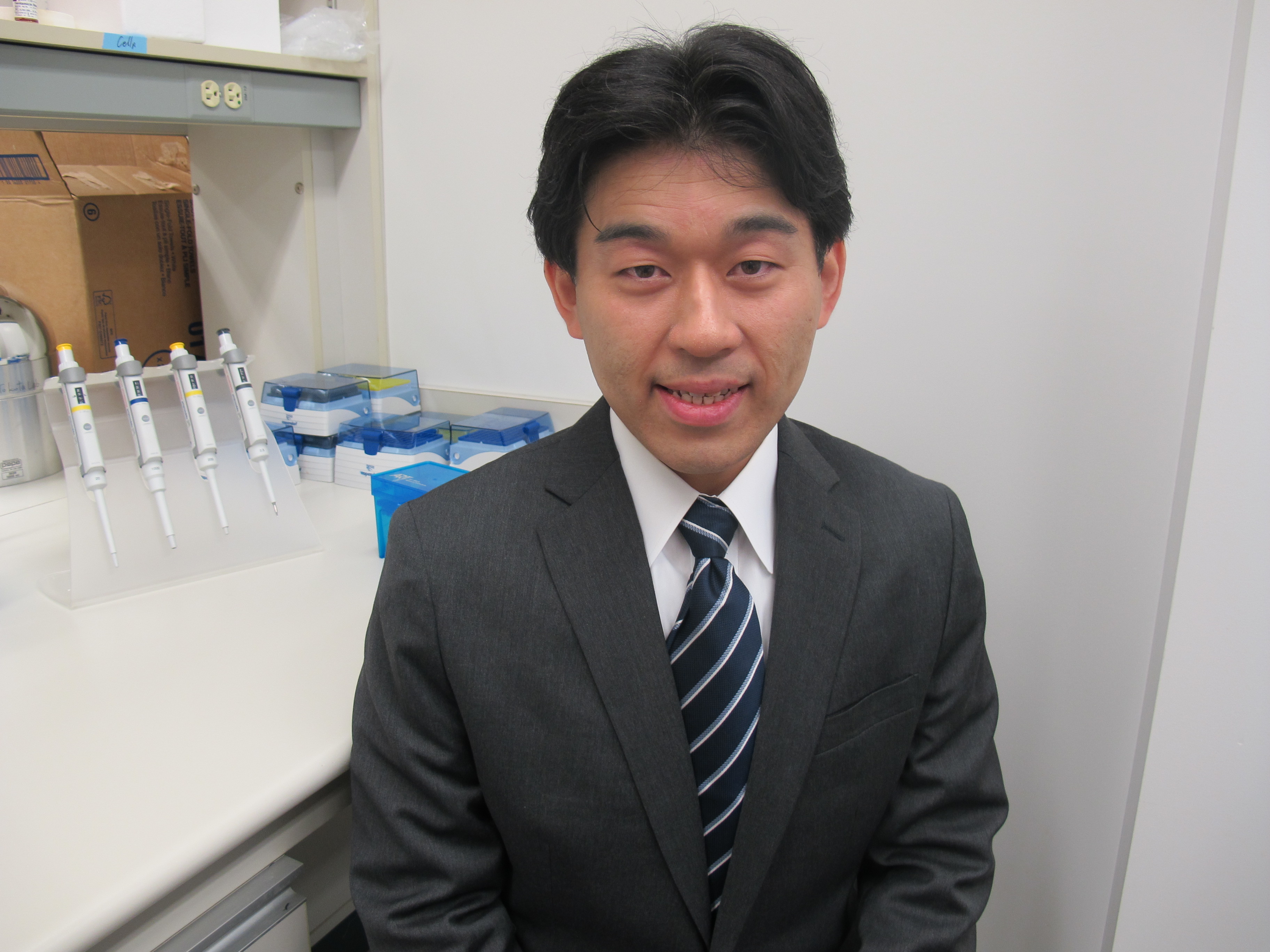
A renowned muscular dystrophy researcher recruited to the Faculty of Medicine & Dentistry has discovered a specific mutation of the disorder that results in dramatic regrowth of a protein that acts like a support beam to keep muscles strong.
Toshifumi Yokota recently published his findings in the peer-reviewed journal, PLOS One. He was the principal investigator on the findings about Duchenne muscular dystrophy, a disorder that causes muscles responsible for movement to weaken. The incurable condition can cause difficulty walking or breathing and is fatal.
Working in a lab using mice models, Yokota and his team discovered a specific mutation of Duchenne muscular dystrophy that causes muscle fibres to dramatically regrow the dystrophin protein. Mice with the mutation had many of these unique muscle fibres that are somehow involved with the regrowth of the important protein that is virtually non-existent in those with the neuromuscular condition.
"If we can find the mechanism that causes the dystrophin protein to regrow, it would be a drug target for the treatment of Duchenne muscular dystrophy. Our discovery is very promising," says Yokota, who is a researcher in the Department of Medical Genetics and holds two research chairs: the Friends of Garrett Cumming Research Chair, Muscular Dystrophy Canada; and the H.M. Toupin Neurological Science Chair.
Garrett Cumming, for whom the Research Chair is named, said: "This is very exciting news and hopefully these findings will lead to a viable treatment and ultimately a cure."
Yokota noted the increased dystrophin protein didn't result in muscle regeneration and the team is continuing their research to find out why, using specialized laser equipment in their lab to try to answer some of their unsolved questions.
"We are now working on the next steps: what causes these muscle fibres to increase in number?"
Yokota's co-first author on the paper was his undergraduate summer student, Merryl Rodrigues.